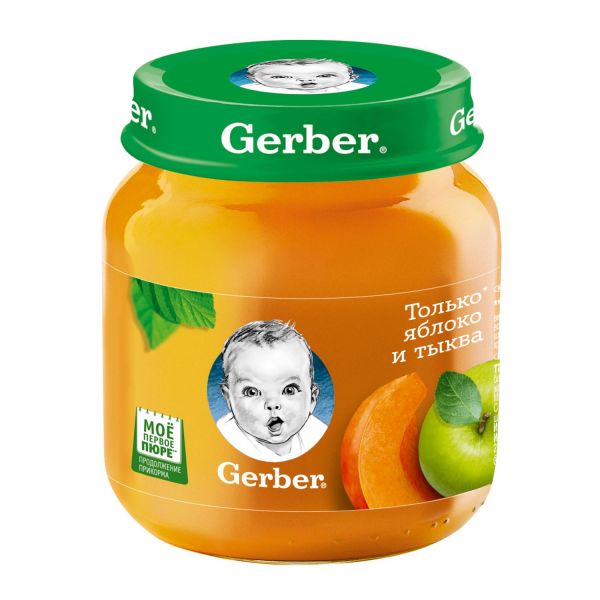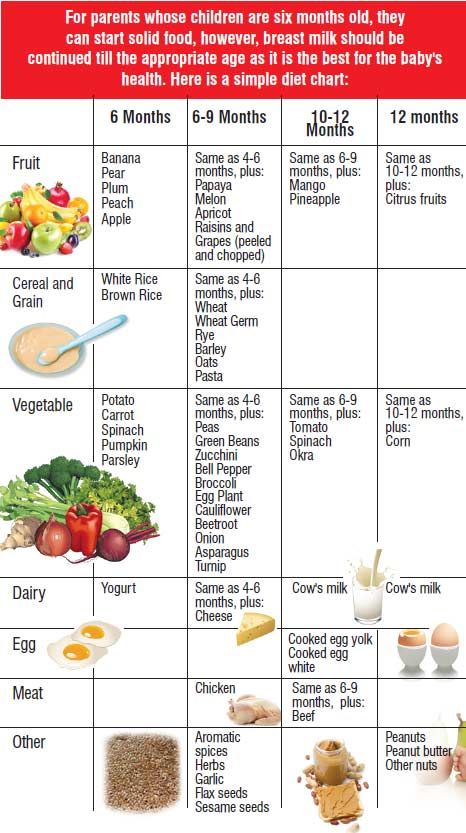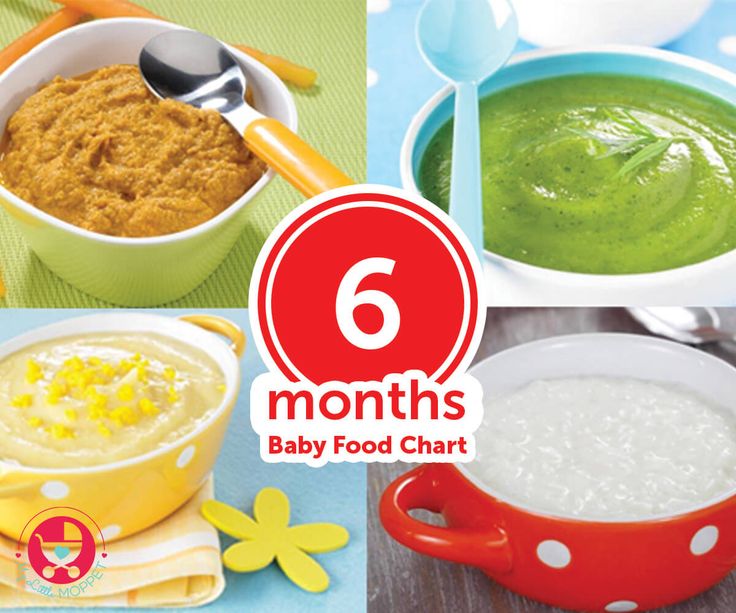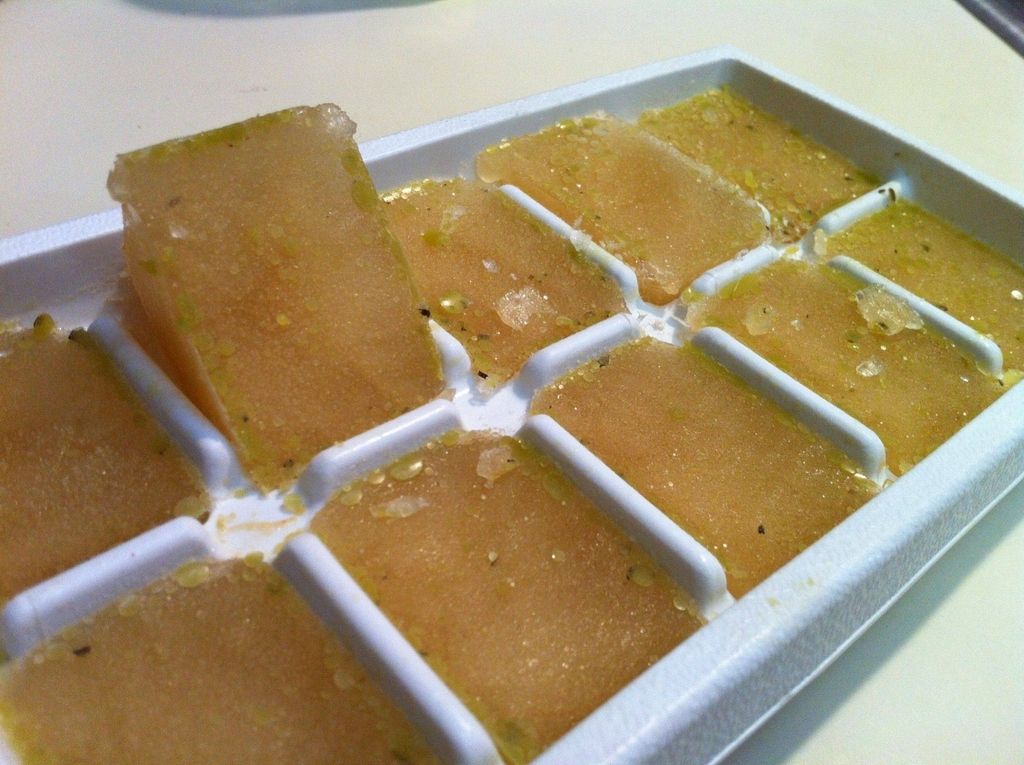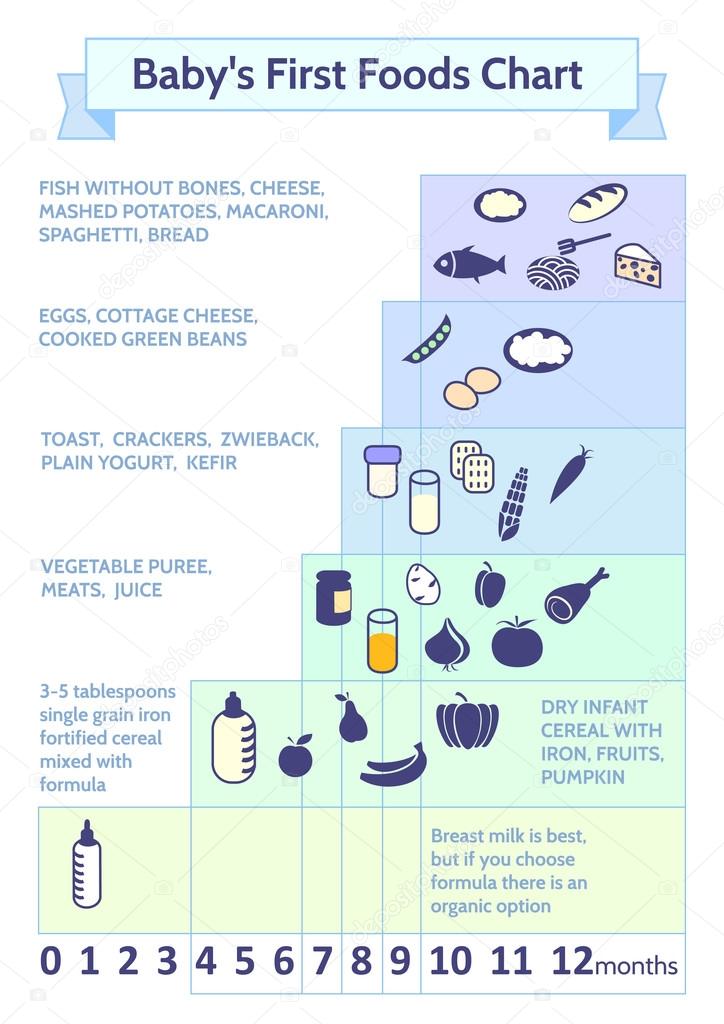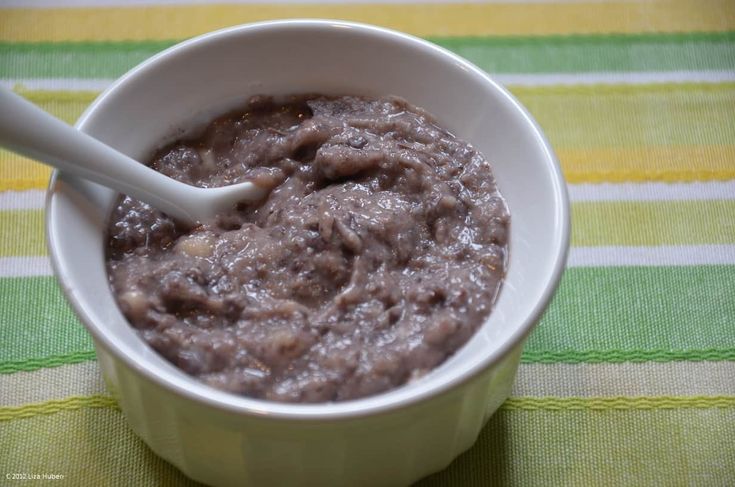Gerber baby food poisoned
Parents Erupt Over FDA Failure To Regulate Toxic Metals in Food
The Food and Drug Administration has yet to take any action, despite having spent three years quietly exploring the issue of toxic contaminants in food during the Trump administration.
“This is not a baby food problem. This is a food problem,” said Tom Neltner, chemicals policy director at the Environmental Defense Fund, which has lobbied for more regulation of heavy metals.
The congressional report, released earlier this month by a House Oversight Committee panel, found that four major baby food brands — Beech-Nut, Gerber, Earth’s Best Organic and HappyBABY — sold products that their own internal testing showed contained arsenic, lead and cadmium at levels far higher than what most health experts consider safe for infants.
In the days following the report, each of the baby food companies sought to reassure parents that their products are safe and that they follow very high standards for sourcing ingredients, but it’s done little to lessen the blowback.
Though in some cases the companies knew their ingredients contained elevated levels of heavy metals, the baby food makers at the center of the investigation weren’t violating any rules because the FDA has not set standards for most heavy metals in baby food.
The FDA, which has historically focused most of its attention on foodborne pathogens like Salmonella and Listeria, in 2017 launched a working group to look at heavy metals and other contaminants in food, cosmetics and supplements to little fanfare — a move that was partly a reaction to an EPA study from earlier that year that found food was a surprisingly significant source of lead exposure for young children.
A chart that was buried in supplementary material in the study showed that about half of blood lead exposure for most children between the ages of 1 and 6 comes from food. The next biggest contributors: soil and dust (including from lead-based paint), air and water.
Significant problem
It’s an important revelation because lead exposure remains a significant public health problem in the United States.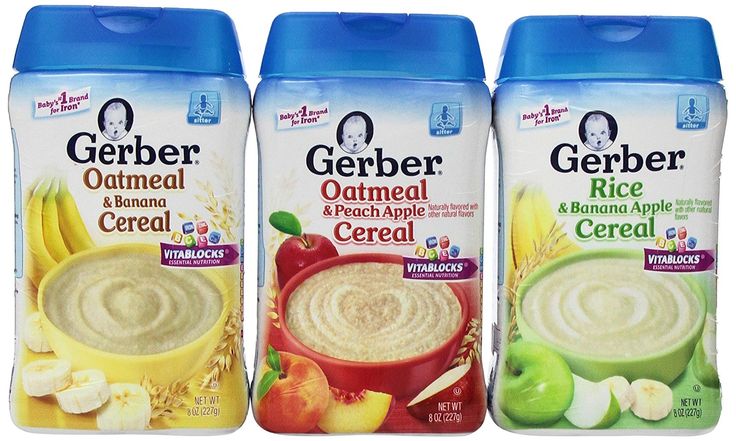 One study estimated that preventing all lead exposure in just the babies born in the year 2018, for example, would deliver $80 billion in societal benefits, in large part due to the increased earnings potential of children with higher IQs and fewer behavioral and health problems.
One study estimated that preventing all lead exposure in just the babies born in the year 2018, for example, would deliver $80 billion in societal benefits, in large part due to the increased earnings potential of children with higher IQs and fewer behavioral and health problems.
About two million children, or nearly 10 percent of all young kids, are estimated to consume more lead than the FDA’s current limit each day, according to the government’s own estimates.
Lead is among the best-known and best-studied neurotoxins, but arsenic, cadmium, and mercury are also routinely found in foods at low levels. As scientists have begun to better understand the health risks from long-term, low-level exposure, and labs have grown better at detecting contaminants at very low levels, more attention has turned to the food supply.
The issue has been on the FDA’s radar, but there have been no changes to any food standards.
Now, with the fresh public outrage over baby food, the Biden administration faces pressure to act, even as it is still without a nominee for FDA commissioner.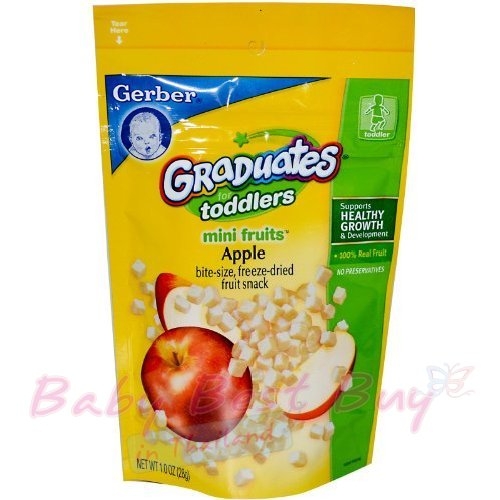
The agency, in a statement to POLITICO, said it is reviewing the congressional subcommittee’s baby food report.
“The FDA takes exposure to toxic elements in the food supply extremely seriously, especially when it comes to protecting the health and safety of the youngest and most vulnerable in the population,” an FDA spokesperson said in an email, noting that heavy metals are found throughout the environment. “Because they cannot be completely removed, our goal is to reduce exposure to toxic elements in foods to the greatest extent feasible and we have been actively working on this issue using a risk-based approach to prioritize and target the agency’s efforts.”
The FDA did not respond to the criticism that it’s been slow to act on the issue, but did acknowledge “that there is more work to be done.”
The reality is that concerning levels of lead, arsenic, mercury and cadmium can routinely be found in many foods, including rice, sweet potatoes, carrots, juices and spices.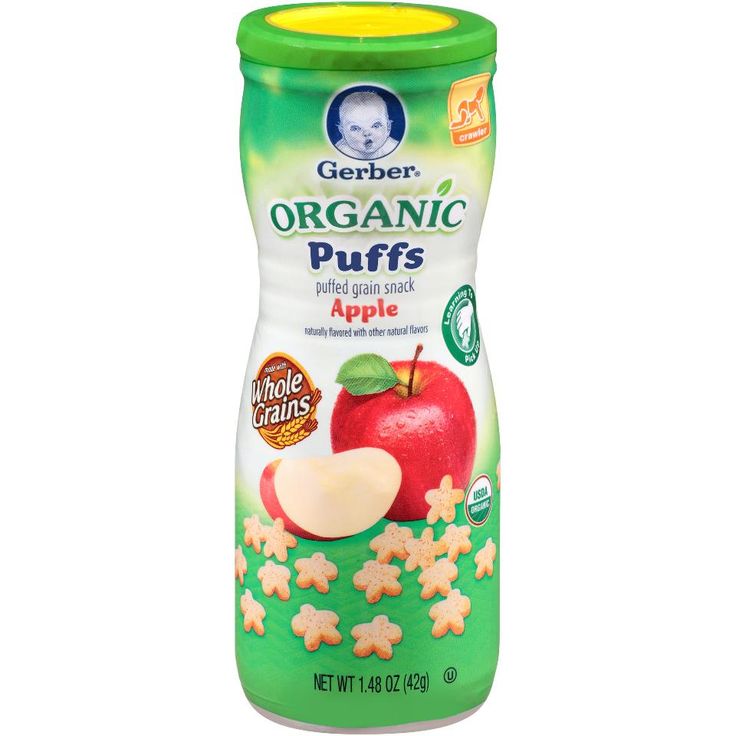 The contamination is happening throughout the food supply — not just in baby food — which means that parents cannot avoid heavy metals simply by making their own food.
The contamination is happening throughout the food supply — not just in baby food — which means that parents cannot avoid heavy metals simply by making their own food.
Crops pull up heavy metals from soil, where some of the metals are naturally occurring but much of the contamination stems from more than a century of pollution, from car exhaust to coal emissions and agricultural chemicals.
Emissions spread heavy metal particles through the air where they eventually settle into soil and water. In the early 20th century, it was common for farmers to use pesticides made with lead and arsenic, especially to grow cotton in the south. Heavy metals don’t degrade, which means crops grown decades later can absorb old contaminants through their roots.
“Parents can’t solve this problem by shopping in the produce aisle and not the baby food aisle,” said Jane Houlihan, research director at Healthy Babies Bright Futures, a nonprofit focused on reducing babies’ exposure to toxic chemicals.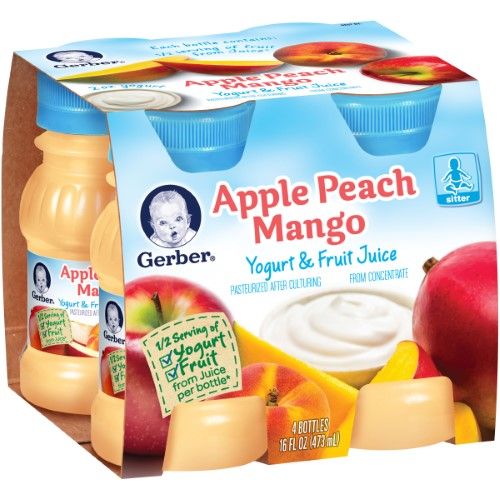 “FDA has to take action.”
“FDA has to take action.”
Small amounts
The good news is that the general population’s exposure to heavy metals has been going down over time,particularly after the government started phasing out leaded gasoline, paints and food cans in the 1970s, which led to a steep drop off in blood levels of lead in children. The bad news is that scientists have only recently come to better understand just how damaging heavy metals can be, particularly for babies and young children, even at very, very low levels.
Even exceedingly small amounts of these neurotoxins can impede a child’s IQ, hinder brain development, lead to behavioral problems, increase cancer risk, and raise the chances of many other diseases. The Centers for Disease Control and Prevention, for example, maintains there’s no known safe blood level of lead in children.
“What’s come into clearer view is that this is an urgent public health problem,” Houlihan said.
Right now, parents and other caretakers are essentially at the mercy of whatever standards baby food companies decide to set for themselves — and the extent to which they actually conduct their own tests and hold themselves to those internal standards.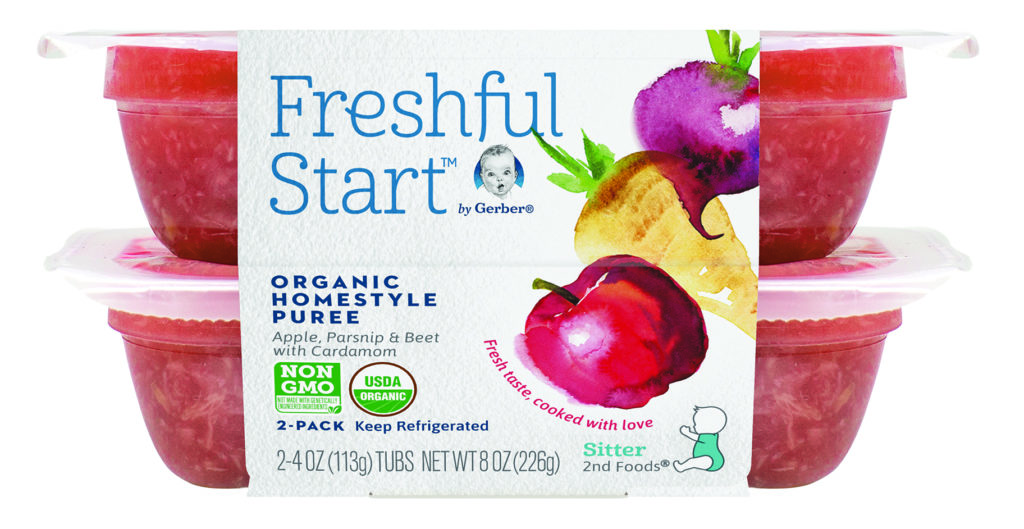
Exactly how low the limit should be for heavy metals in baby food is a matter of debate, but public health advocates contend it should be as low as possible — and there is broad agreement that the few standards FDA currently has are not strict enough to protect babies and young children.
Back in 2013, FDA proposed a voluntary limit for inorganic arsenic in apple juice at 10 parts per billion and the agency has still not finalized the guidance more than seven years later.
Consumer Reports has since pushed for a limit of 3 ppb for all juices, arguing that the agency’s initial guidance — which companies tend to take seriously — was a step in the right direction, but didn’t do enough to mitigate the risk of developmental problems posed by arsenic exposure.
In 2016, the FDA, responding to outside pressure from Consumer Reports and others, set a voluntary limit for inorganic arsenic in infant rice cereal at 100 ppb, but the agency set this level based on cancer risks and what was feasible for the industry at the time, not neurological development risks, which have been shown at much lower levels.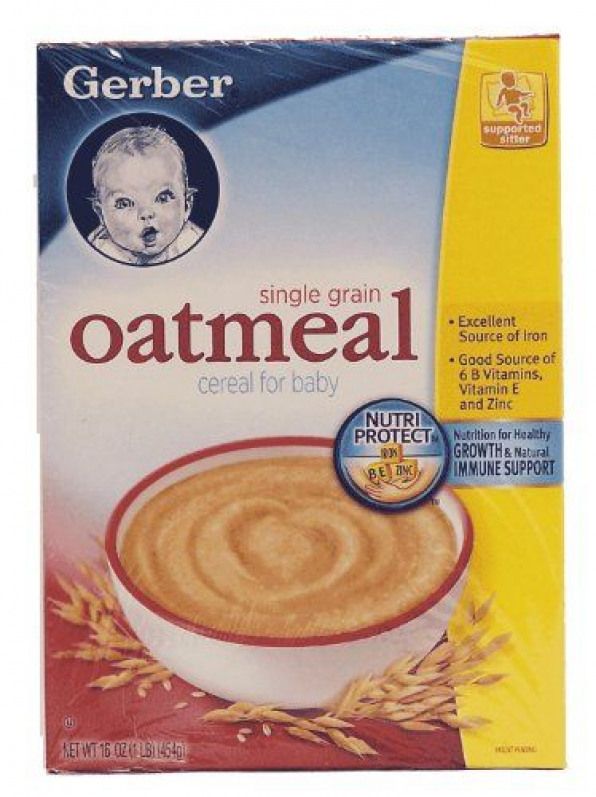 Public health advocates have urged the agency to lower this limit.
Public health advocates have urged the agency to lower this limit.
The agency has also been criticized for lax oversight. Independent tests have shown infant rice cereal makers sometimes sell products that exceed the standard with no repercussions.
Developmental harm
There are no federal standards for lead in baby food, but the FDA has set a 5 ppb lead standard for bottled water, 50 ppb for juice and 100 ppb for candy. By comparison, the American Academy of Pediatrics recommends a 1 ppb limit for school drinking fountains — a threshold that consumer advocates would like to see applied to juice, too.
Cadmium has received far less attention compared to other toxic metals like arsenic and lead, but it’s also prevalent in the food supply. FDA has no standards on cadmium in any foods. Consumer Reports has urged the agency to set a limit of 1 ppb for cadmium in fruit juice.
But heavy metals have prompted the greatest concern by far when found in baby food because infants and young children are the most vulnerable to developmental harm.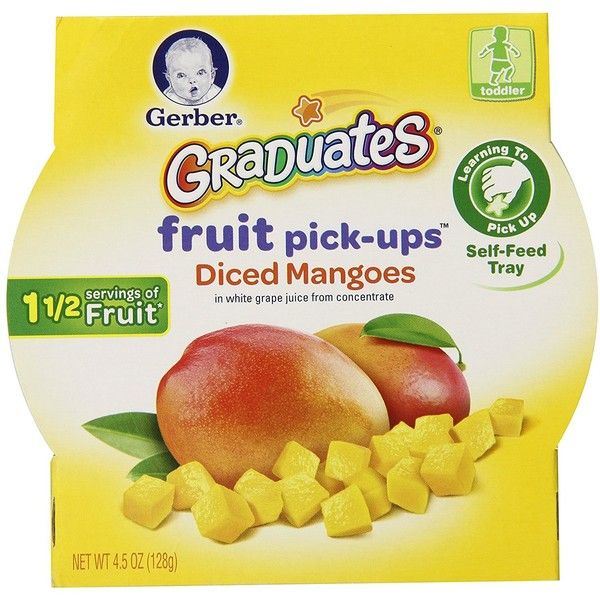 In 2017, the Environmental Defense Fund analyzed FDA’s own routine testing of the food supplyand found there were measurable lead levels in 20 percent of baby products tested.
In 2017, the Environmental Defense Fund analyzed FDA’s own routine testing of the food supplyand found there were measurable lead levels in 20 percent of baby products tested.
The same year, a Colorado-based nonprofit called the Clean Label Project tested some 500 of the country’s best-selling baby foods — one the largest samples to date — and found that nearly 40 percent contained at least trace levels of one heavy metal and 25 percent contained all four, though overall the levels were relatively low.
The following year,Consumer Reports tested 50 popular baby food products and found two thirds contained “worrisome levels” of at least one heavy metal. They reported that 15 of the products tested would pose health risks to children if regularly consumed. Products containing rice and sweet potatoes were particularly likely to test positive. Organic products were just as likely to be contaminated as conventional products.
The House Oversight subcommittee got the idea to look into baby food afteranother report in 2019 by Healthy Babies Bright Futures, a nonprofit, tested nearly 170 products and found heavy metals present in 95 percent of their samples.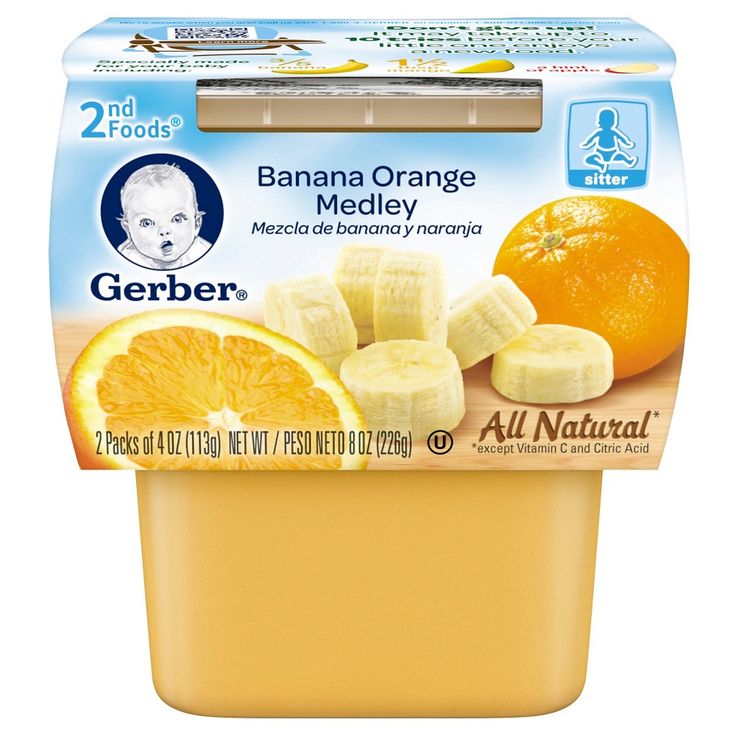 Most foods had relatively low levels, but there were product categories that showed higher levels, including lead in carrots and sweet potatoes and particularly arsenic in rice. Four of the seven infant rice cereals tested exceeded FDA’s voluntary limits for inorganic arsenic. The group is urging FDA to set standards for baby food, arguing that repeated exposure at very low levels adds up and poses health risks.
Most foods had relatively low levels, but there were product categories that showed higher levels, including lead in carrots and sweet potatoes and particularly arsenic in rice. Four of the seven infant rice cereals tested exceeded FDA’s voluntary limits for inorganic arsenic. The group is urging FDA to set standards for baby food, arguing that repeated exposure at very low levels adds up and poses health risks.
The congressional report this month was based on data that companies voluntarily turned over to the subcommittee. The report reveals that many of the ingredients and products that were tested by companies themselves contained heavy metals at levels that exceed even generous voluntary limits and even some companies’ own internal limits.
“Our worst fears were confirmed,” a senior Democratic committee aide told POLITICO.
It’s difficult to draw broad conclusions about the baby food supply from the report, since it’s not clear how often companies are testing or how much of their own data they turned over to the committee, but the data that were released show numerous examples of significant levels of heavy metals getting through the supply chain and onto store shelves.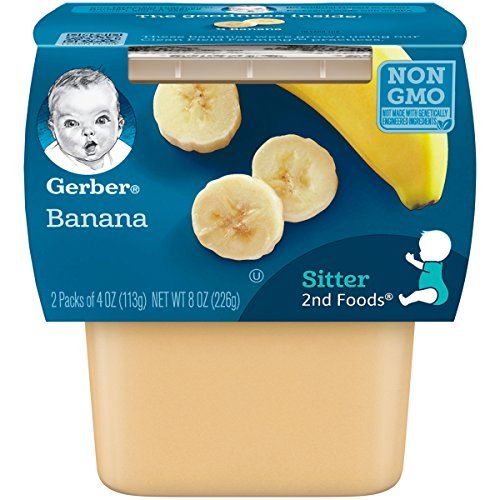
For instance, HappyBABY, an organic baby food brand, sold products that tested positive for lead at levels as high as 641 ppb and arsenic as high as 180 ppb, nearly twice FDA’s limit for rice cereal. Nearly 20 percent of the company’s finished products contained over 10 ppb of lead, according to the committee.
In a statement to POLITICO, the company said the data presented in the report was based on “a small portion” of its portfolio and is “not representative generally of our entire range of products at-shelf today.”
“We are disappointed at the many inaccuracies, select data usage and tone bias in this report,” the company said in an email. “We can say with the utmost confidence that all Happy Family Organics products are safe for babies and toddlers to enjoy, and we are proud to have best-in-class testing protocols in our industry.”
Beech-Nut, which markets itself as a “real food” brand, used nearly 90 different ingredients that had tested positive for lead at more than 15 parts per billion, including cinnamon that had been shown to be as high as 886 parts per billion.
Beech-Nut Nutrition said the company is currently reviewing the congressional report and will continue to support setting “science-based standards that food suppliers can implement across our industry.”
“We want to reassure parents that Beech-Nut products are safe and nutritious,” the company said.
Industry standards
Most of the companies targeted by the subcommittee’s investigation, including Gerber and Hain Celestial, which makes Earth’s Best Organic,are part of a group called the Baby Food Council, a partnership with Cornell University and the Environmental Defense Fund toset industry standards for baby food. Three other leading companies didn’t turn over testing data to the committee.
Nonetheless, the findings of the congressional report sparked concern bordering on panic by many parents and other caretakers, especially a year into a pandemic that’s upended schools, jobs, childcare and family support for millions of families.
Emily Oster, a popular economist and author on parenting issues, wrote that she was inundated with so many emails from parents that she moved her weekly newsletter up a few days to help answer questions. (She concluded that more rigorous government standards make sense and parents might consider cutting back on rice products, but should otherwise try not to worry about this too much.)
(She concluded that more rigorous government standards make sense and parents might consider cutting back on rice products, but should otherwise try not to worry about this too much.)
Moms flooded the social media pages of baby food brands with blistering anger. Some said they’d been in tears over the news, thinking they’d harmed their children. Several demanded to see testing results, threatened to sue, or said they were planning to take their children to the doctor to have their blood tested for heavy metals. Others said they were tossing out all their store bought food and boycotting the companies in the report.
“I have spent this last year home schooling and trying to figure [out] child care,” wrote one mom of three to Beech-Nut on the company’s Instagram page, who said her youngest had been born right at the start of the pandemic. “I have been worried sick that family would get sick. Now I learn I have something completely new to worry about.”
Every expert POLITICO interviewed for this story said it was unfortunate that parents might think they need to avoid all pre-made foods, particularly at such a stressful time.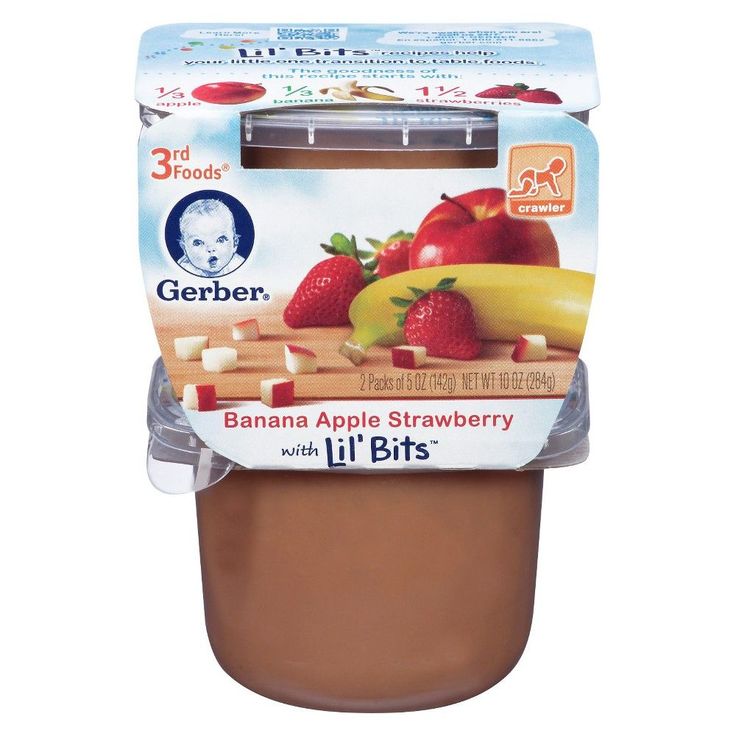
The fact is that making baby food from scratch would probably not meaningfully reduce a child’s exposure to heavy metals. Digging deeper into the congressional report, it’s clear that many common ingredients can be contaminated and a caretaker has no way of knowing whether the sweet potatoes, kale and cinnamon in their own kitchen are any less contaminated than what baby food companies are sourcing.
The more fundamental issue, advocates say, is that there aren’t standards in place to pressure the supply chain to reduce exposure as much as possible.
“FDA has failed. They failed to set standards for baby food that companies have to meet. And they’ve failed to help, busy, sleep-deprived parents make better choices,” said Scott Faber, senior vice president of government affairs at the Environmental Working Group.
“The idea that new parents are going to navigate this is insane,” he added. “We’re not all nutritionists and toxicologists.”
The House subcommittee that sparked the firestorm earlier this month is planning to do more oversight on baby food, a senior Democratic committee aide told POLITICO. It makes sense to first focus on babies and small children because they are the most vulnerable to the developmental harm from heavy metals, the aide said.
It makes sense to first focus on babies and small children because they are the most vulnerable to the developmental harm from heavy metals, the aide said.
“If you fail to address it here, there will be no broader action,” the aide said.
The subcommittee is working on a bill that would require FDA to come up with standards for heavy metals in baby foods and put in place testing requirements, among other things. Even if such a bill becomes law, it would likely take FDA several years to set such standards, if the agency’s past timelines are any indication.
“We don’t want to wait for that,” the committee aide said.
House Democrats are optimistic that the Biden administration will be open to working on this issue. One hopeful sign: Biden’s pick to lead the Department of Health and Human Services, which sits atop FDA, is Xavier Becerra, the former attorney of California whoin 2018 sued two toddler milk companies over allegations they sold products with elevated levels of lead.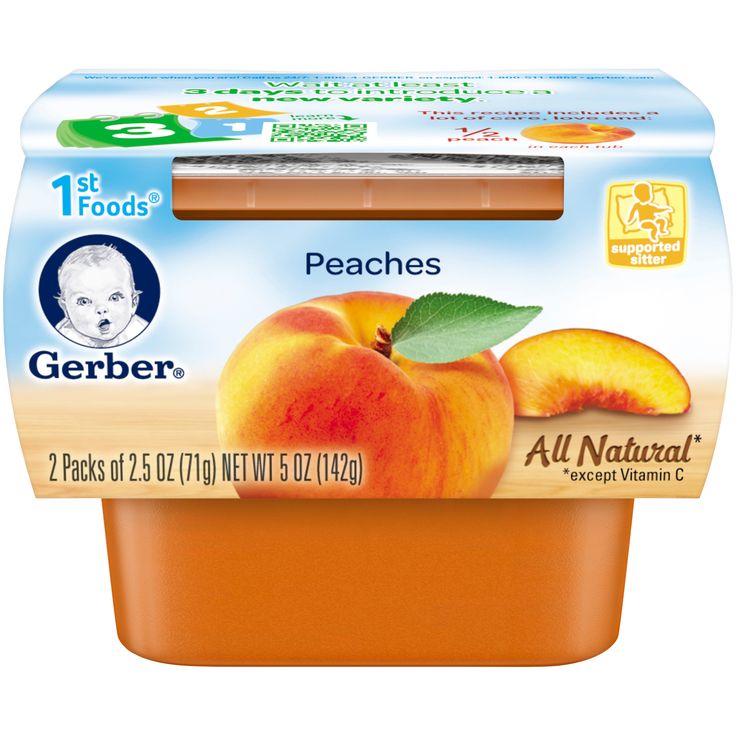 Becerra’s office alsorecently went after seafood companies for selling products contaminated with lead and cadmium.
Becerra’s office alsorecently went after seafood companies for selling products contaminated with lead and cadmium.
Becerra’s crackdown on seafood processors reflects a recognition that toxic-metal contamination affects more than just baby food.
Practical steps
While parents await action from the FDA, there are some practical steps they can take to protect their children from elevated levels of metal contaminants, health and consumer advocates say: Avoid or limit rice products for infants and young children. Oatmeal infant cereal or other grain cereals, for example, can contain far less arsenic. Brown rice tends to contain higher levels of arsenic than white rice.
Rice puff and teether snacks appear to sometimes test at concerningly high levels of arsenic. Until more is known, it may make sense to swap in other snacks to cut back on potential exposure.
Parents can also cut back on juice, since apple and grape juice commonly contain low levels of arsenic and lead, and instead choose water or milk.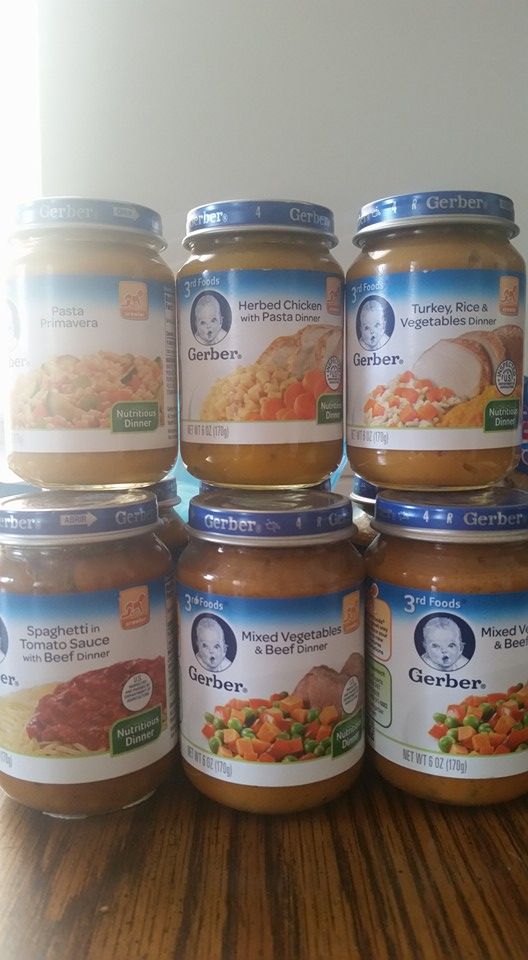 Certain vegetables like carrots and sweet potatoes, while healthy options overall, have been shown to contain more heavy metals than others, so serving a wide variety of vegetables is a good idea.
Certain vegetables like carrots and sweet potatoes, while healthy options overall, have been shown to contain more heavy metals than others, so serving a wide variety of vegetables is a good idea.
Pediatricians across the country, all of a sudden hounded by questions about heavy metal exposure, have tried to strike a balance for worried parents: Don’t panic. Focus on variety. The American Academy of Pediatricsreleased tips for parents, suggesting that they can also have their home water tested for heavy metals — in addition to making slight shifts in the diet — but ultimately: “Stronger rules and regulations for testing and limiting the amount of heavy metals in foods for babies and toddlers are most important.”
Phil Landrigan, a pediatrician and children’s health researcher at Boston College who played a crucial role in the government crackdown on lead decades ago, agrees that FDA action is urgently needed.
Ultimately, this is not a problem that should fall to caregivers to navigate, especially when low levels of these toxins have sweeping health consequences for future generations, he explained.
“Parents have done nothing wrong,” he said. “They’ve been hoodwinked by these companies and failed by their government.”
Gerber Lawsuit | Toxic Heavy Metals
- Brief Summary: A U.S. government report concluded that Gerber knowingly sells baby foods that contain dangerous amounts of toxic heavy metals linked to neurodevelopmental disorders, including autism and ADHD. While other brands have issued recalls on products that tested above dangerous thresholds for arsenic in baby foods, Gerber has taken "no such actions to protect consumers."
- What We Are Saying: “The scientific literature shows a strong and consistent signal between exposure to heavy metals in young babies and neurodevelopmental disorders like autism and ADHD. We believe Gerber has known that its baby foods are dangerous but the company refuses to take responsibility to protect children from harm.” – Baby Food Lawyer Pedram Esfandiary
- What You Can Do: Parents may choose to pursue a baby food lawsuit against Gerber, alleging the company knowingly sold baby foods with dangerously high levels of arsenic, lead, cadmium, and mercury.
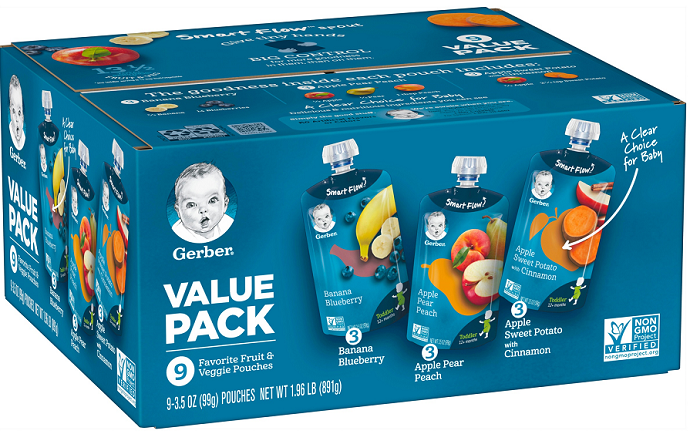 If your child developed autism or ADHD after consuming baby foods from Gerber, you may be eligible to join a Gerber lawsuit.
If your child developed autism or ADHD after consuming baby foods from Gerber, you may be eligible to join a Gerber lawsuit.
Information on Gerber Lawsuits
- Is Gerber Baby Food Safe?
- Is Gerber Organic Food Safe?
- Why Are Heavy Metals in Baby Food Bad for Babies?
- Which Gerber Foods Have Heavy Metals?
- Is There a Gerber Food Recall?
- Do I Qualify for a Lawsuit Against Gerber?
- What is My Gerber Lawsuit Worth?
- How Do I Choose the Best Baby Food Lawyer for My Gerber Lawsuit?
Is Gerber Baby Food Safe?
No. Gerber food products have high levels of toxic heavy metals.
In February of 2021, a U.S. House Oversight subcommittee issued a report that found tremendous amounts of toxic heavy metals in baby food products from several major brands, including Gerber. The report stated that Gerber and other manufacturers "knowingly" sold baby food products like purees, cereal, and rice puffs that contain dangerous amounts of arsenic, lead, cadmium, and mercury.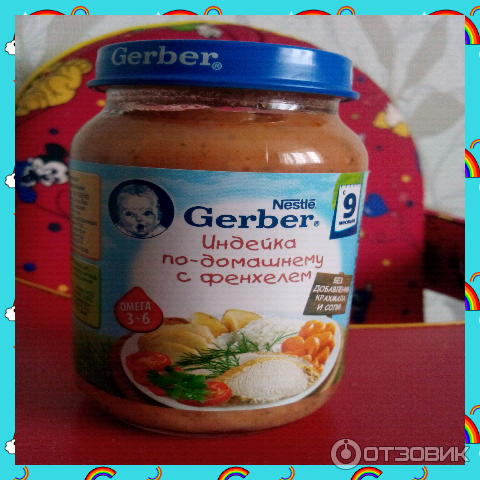 Numerous studies have found links between these toxic heavy metals and neurodevelopmental disorders in children, including autism spectrum disorder (ASD) and attention-deficit/hyperactivity disorder (ADHD).
Numerous studies have found links between these toxic heavy metals and neurodevelopmental disorders in children, including autism spectrum disorder (ASD) and attention-deficit/hyperactivity disorder (ADHD).
The report found the following:
Arsenic: Gerber used 67 batches of rice flour with over 90 parts per billion (ppb) of inorganic arsenic.
Lead: Gerber used ingredients in its baby food products that contained up to 48 ppb of lead. Many of Gerber’s ingredients tested over 20 ppb lead. The average amount of lead in Gerber juice concentrates was 11.2 ppb.
Cadmium: 3 out of 4 Gerber carrots tested for cadmium at levels above 5 ppb. Some contained more than 87 ppb of cadmium.
Mercury: Like many of the other baby food manufacturers mentioned in the subcommittee report, Gerber rarely tests its baby foods for mercury.
The same government subcommittee issued a follow-up report in September of 2021 that specifically called out Gerber for failing to properly test its products and issue a baby food recall.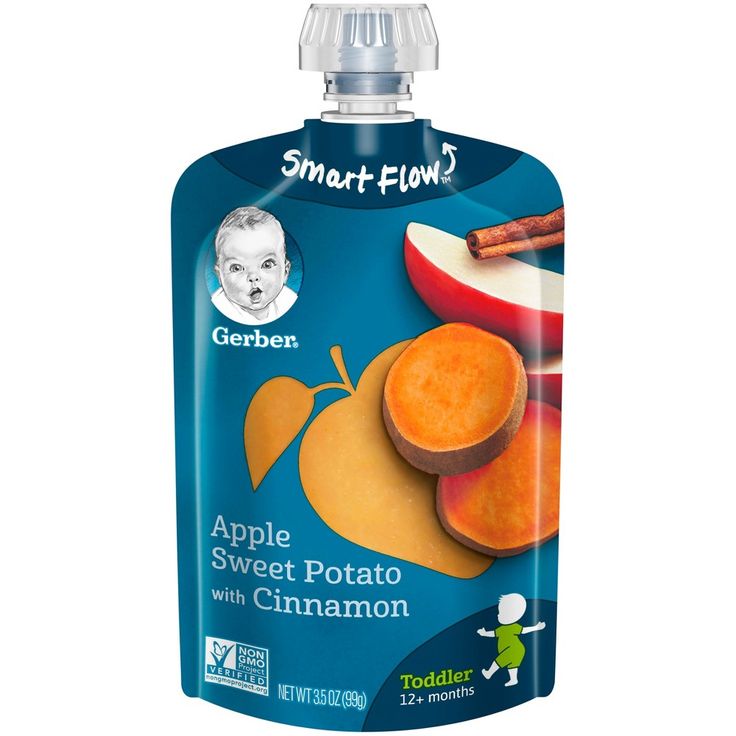 According to the September report, Gerber food products tested at above-average amounts of inorganic arsenic compared to Beech-Nut, another major baby food brand. But while Beech-Nut issued a recall on some of its products, the subcommittee said Gerber took "no such actions to protect consumers."
According to the September report, Gerber food products tested at above-average amounts of inorganic arsenic compared to Beech-Nut, another major baby food brand. But while Beech-Nut issued a recall on some of its products, the subcommittee said Gerber took "no such actions to protect consumers."
Is Gerber Organic Food Safe?
No, Gerber organic baby food products also tested high for toxic metals. Per the government subcommittee report, Gerber’s Organic Rice Cereal tested up to 76 ppb inorganic arsenic and contained, on average, 65.6 ppb inorganic arsenic. Gerber charges consumers 36.4% more for its Organic Rice Cereal than for its standard product, even though the levels of arsenic present in both are substantial.
Why Are Heavy Metals in Baby Food Bad for Babies?
Heavy metals are dangerous for young children because they consume more food in relation to their body weight and absorb heavy metals more readily than adults. Linda McCauley studies environmental health effects as Dean of the Nell Hodgson Woodruff School of Nursing at Emory University.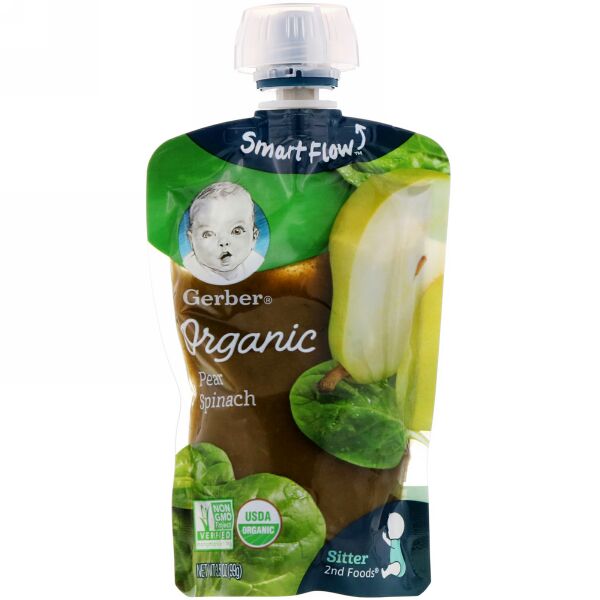 According to McCauley, “[n]o level of exposure to these metals has been shown to be safe in vulnerable infants.” McCauley adds that exposure to several sources of heavy metals can cause cumulative effects that are particularly dangerous for babies.
According to McCauley, “[n]o level of exposure to these metals has been shown to be safe in vulnerable infants.” McCauley adds that exposure to several sources of heavy metals can cause cumulative effects that are particularly dangerous for babies.
Keep in mind that it is not just the presence of heavy metals in baby food that is harmful to babies and young children—it is the staggering levels present in the ingredients and foods.
- The U.S. Food and Drug Administration (FDA) allows a maximum level of 10 ppb arsenic in bottled water. Gerber baby food ingredients tested at over 90 ppb arsenic.
- The FDA allows a maximum level of 5 ppb lead in bottled water. Gerber baby food ingredients tested up to 48 ppb lead.
- The FDA allows a maximum level of 5 ppb cadmium in bottled water. Gerber baby food ingredients tested up to 87 ppb cadmium.
- The U.S. Environmental Protection Agency (EPA) allows a maximum of 2 ppb of mercury in drinking water.
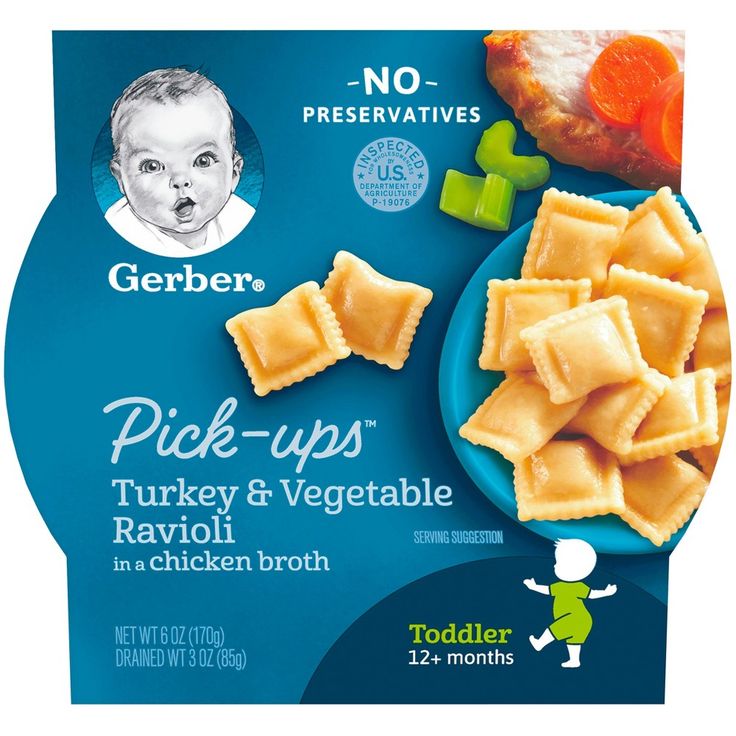 Gerber rarely tests its products for mercury.
Gerber rarely tests its products for mercury.
The FDA and U.S. Centers for Disease Control and Prevention (CDC) have said that babies and young children who are exposed to heavy metals may suffer from a permanent decrease in IQ, an increased risk of future criminal and antisocial behavior, and untreatable, potentially permanent brain damage.
For more information on the dangers of toxic metals, please read our expert reports:
- Dr. Michael Aschner
- Dr. Hannah Gardener
- Dr. Beate Ritz
- Dr. Kevin Shapiro
Which Gerber Foods Have Heavy Metals?
Two government reports and testing from consumer advocacy organizations have found heavy metals in the following Gerber baby food products and ingredients:
- Arrowroot Biscuits
- Barley Single Grain Cereal
- Carrot Sitter 2nd Food
- Carrot Supported Sitter 1st Goods
- Conventional Carrots
- Conventional Sweet Potatoes
- Diced Carrots Veggie Pickups
- Flour Rice Long Grain
- Fruit & Veggie Melts Truly Tropical Blend Free
- Grape Juice White
- Multigrain Cereal
- Oatmeal Single Grain Cereal
- Organic Rice Cereal
- Organic Sweet Potatoes
- Probiotic Rice Banana Apple Cereal
- Rice Single Grain Cereal
- Sweet Potato Sitter 2nd Foods
- Sweet Potato Supported Sitter 1st Foods Tub
- Whole Wheat Whole Grain Cereal
You can read more about baby foods to avoid in our blog.
Is There a Gerber Food Recall?
As of April 2022, Gerber has failed to issue a baby food recall over heavy metals in food. The failure to recall its products is particularly concerning because the government baby food report issued in September of 2021 said Gerber “should recall two infant rice cereal product codes and consider discontinuing sales of its rice cereal.”
Per the report, Alaska state health officials tested products from both Beech-Nut (another major baby food company) and Gerber for heavy metals. The results of the testing were nearly identical: Gerber food products averaged 87.43 ppb inorganic arsenic, which was 2 ppb higher than Beech-Nut’s 85.47 ppb. Two Gerber products tested above 100 ppb for inorganic arsenic, which is above the FDA’s current limit for inorganic arsenic in infant cereal.
In response to the testing, Beech-Nut announced that it was recalling some of its infant rice cereal products and leaving the infant rice cereal market altogether.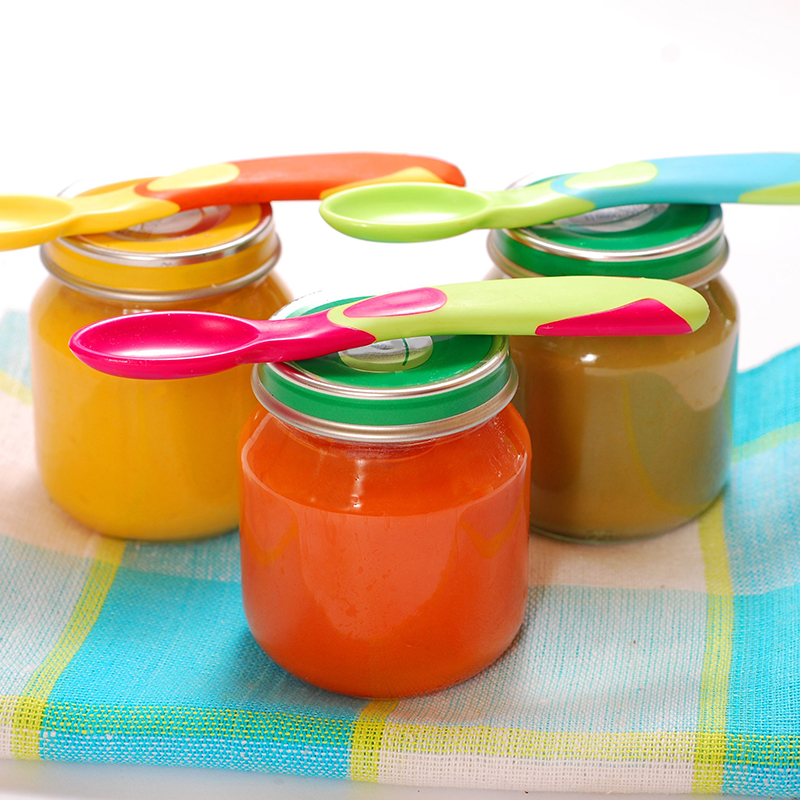 Even though Gerber products presented at least as much danger to babies as Beech-Nut products, Gerber “has taken no action to protect babies that could be harmed by its products,” the report stated. The subcommittee added that there “is no excuse for Gerber’s delay in recalling its dangerous products.”
Even though Gerber products presented at least as much danger to babies as Beech-Nut products, Gerber “has taken no action to protect babies that could be harmed by its products,” the report stated. The subcommittee added that there “is no excuse for Gerber’s delay in recalling its dangerous products.”
Do I Qualify for a Lawsuit Against Gerber?
Yes, parents may file a lawsuit against Gerber and/or other baby food companies if their children consumed substantial quantities of baby foods and later developed autism spectrum disorder (ASD) and/or attention-deficit/hyperactivity disorder (ADHD). To join a Gerber lawsuit, the first thing you will need to do is contact a baby food lawyer taking on these cases and see if you qualify.
At Baum Hedlund, the process to see if you qualify for a Gerber lawsuit is simple. First, you contact our firm and one of our representatives will ask that you complete a case evaluation form. This will take about 15 -20 minutes to complete. Once we receive your case evaluation form, our legal team reviews it and responds to any questions you may have about filing a case.
Once we receive your case evaluation form, our legal team reviews it and responds to any questions you may have about filing a case.
What is My Gerber Lawsuit Worth?
Here is a general guide to how compensation might work in these cases.
A lawsuit seeks financial compensation called damages. Damages in a lawsuit against Gerber and/or other baby food companies are calculated based on, among other things, health care bills (money already spent and future costs of care), loss of earnings if a parent had to stop working to take care of their child, and the injury, pain and suffering caused to the child and family. There is also the possibility for punitive damages against Gerber and other companies. Punitive damages are exemplary damages awarded at the court's discretion when a defendant’s actions are particularly harmful.
Parents with children who have been diagnosed with autism or ADHD know that health care services for their children are often expensive and sometimes are not covered by insurance.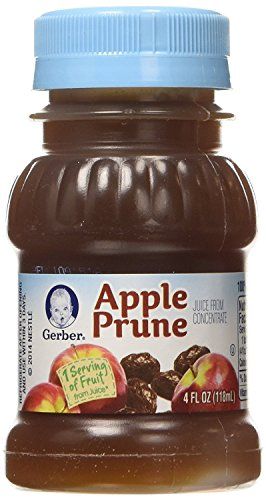 Speech therapy, occupational therapy, and other services are necessary for children with these diagnoses. In many cases, therapies are needed for years.
Speech therapy, occupational therapy, and other services are necessary for children with these diagnoses. In many cases, therapies are needed for years.
A lawsuit seeks to compensate parents for these and other expenses because they never would have purchased Gerber baby foods (or foods from other companies) if Gerber had disclosed the dangers of toxic heavy metals on its food labels.
How Do I Choose the Best Baby Food Lawyer for My Gerber Lawsuit?
When choosing a lawyer for a case like this, there are a few things to consider. First, you want to make sure your lawyer has the experience and resources needed to win your case. Second, your lawyer should be committed to sending a strong message to baby food manufacturers: failure to protect the health of young children comes with consequences.
The attorneys at Baum Hedlund have a proven track record in mass tort cases involving consumer harm. In 2019, our firm and co-counsel won a $2.055 billion jury verdict in a case involving a defective consumer product that we alleged caused our clients to develop cancer. This historic verdict helped pave the way for settlement agreements worth nearly $11 billion for thousands of people with similar claims. Put simply, we know what it takes to go up against corporate giants and win.
This historic verdict helped pave the way for settlement agreements worth nearly $11 billion for thousands of people with similar claims. Put simply, we know what it takes to go up against corporate giants and win.
Our baby food lawyers were among the first in the country to investigate this serious public health issue and pursue justice for parents. As of this writing, we represent well over 1,000 children from across the country in this litigation. Our firm filed the first baby food lawsuit in California and perhaps, the country, last year on behalf of a young boy named Noah who developed ASD and ADHD after consuming baby foods from Gerber and several other manufacturers. You can learn more about this case and the litigation in this episode of Spotlight on America, an award-winning investigative news program airing on 90+ TV stations across the country. The program includes profiles of our client, Noah Cantabrana, and interviews with Noah’s mother, Melissa Cantabrana, and Baum Hedlund baby food lawyer Pedram Esfandiary.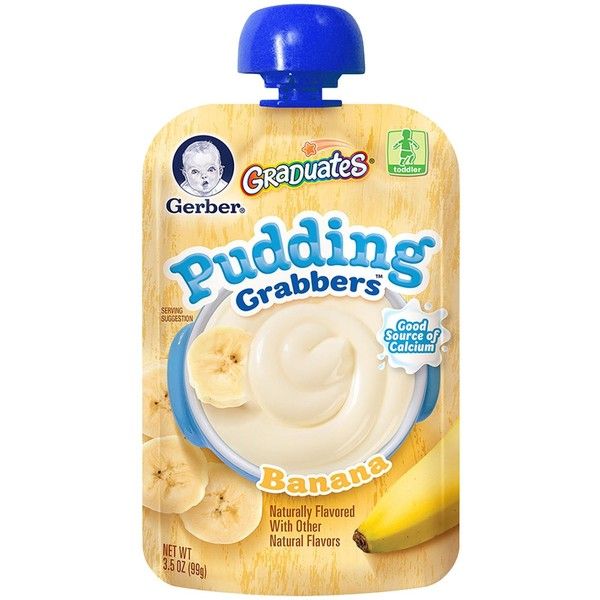
Experts from the Subcommittee on Economic and Consumer Policy of the US House of Representatives found dangerous levels of toxic metals in the baby food of several American brands. CNN writes about the progress of the investigation.
- Testing found high levels of substances such as arsenic, lead, cadmium and mercury in baby products. These heavy toxic metals pose a serious health hazard to children.
- Products from Gerber, Nurture Inc., Hain Celestial Group and Beech-Nutrition.
- Manufacturers are accused of knowingly selling these unlabeled products to parents who are unaware of the risks they are putting their children at.
- Experts and the World Health Organization also draw attention to the fact that exposure to these metals can lead to a decrease in intelligence, inhibition of the neurological development of infants and impaired brain function.
US baby food market situation
According to the 2019 Healthy Babies Bright Futures (HBBF) report, 95% of baby food samples tested contain at least one of four substances: arsenic, mercury, cadmium or lead.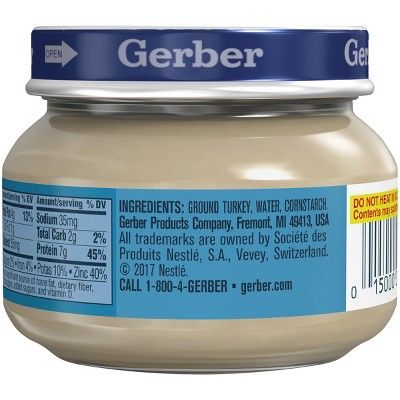
- Experts tested 168 baby food brands. 25% of them contained all four substances at once.
- The researchers specifically recommended avoiding rice-based foods, as well as carrots, sweet potatoes, and fruit juices.
- Instead, scientists recommended steaming vegetables for children, feeding them cereals, fruits for breakfast, and using a frozen banana or chilled cucumber to relieve teething pain.
In Russia
, New Zealand (1), Russia (4), Finland (1), Switzerland (1) and Estonia (1), which are sold in Russia.
- Experts did not reveal any violations, but only the Belarusian product showed full compliance with all quality standards.
- Experts tested the mixtures for microbiological safety and the presence of preservatives and antibiotics.
- The results showed that the products are "free of dangerous microorganisms (including salmonella), mold and yeast, preservatives and antibiotics, lead, mercury, cadmium and arsenic.
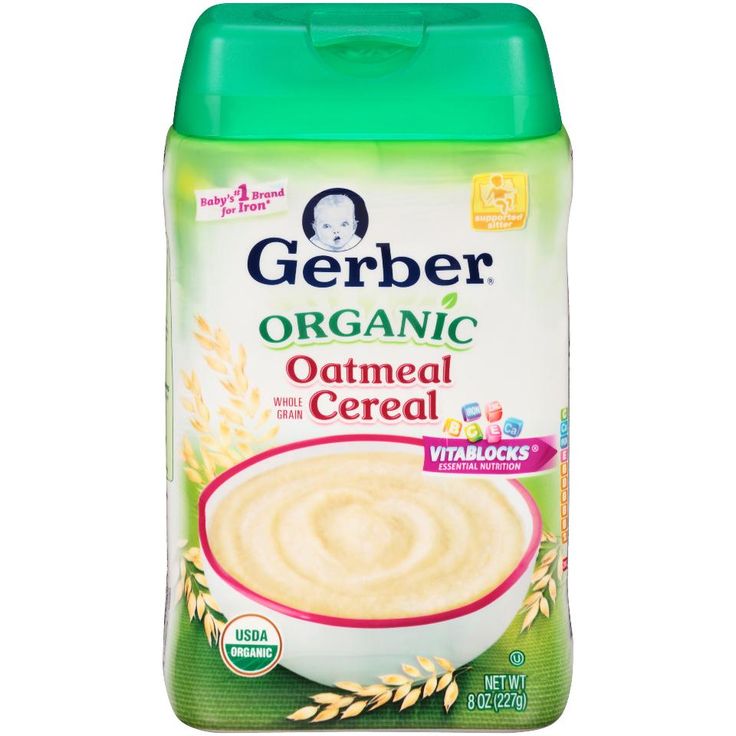 "
"
Child food poisoning cases
- On November 24, 2009, two businessmen were executed in China for producing and selling baby milk containing melamine, which is widely used to make dyes, glues and concrete. As a result of drinking poisoned milk, six children died, and more than 300 thousand fell ill with severe urolithiasis. In total, businessmen sold 1,500 tons of melanin milk.
- In January Emmanuel Besnier, CEO of Lactalis, announced that 12 million cans of salmonella-contaminated baby food would be withdrawn from sales worldwide. Products for babies were produced at a factory in the commune of Craon. At the time of the announcement of the seizure in France alone, 37 children had contracted salmonellosis. The age of the sick - from 2 weeks to 9months.
United States will take military action against infant formula
Problems with baby food in the United States provoked the recall of a large manufacturer of products from a plant in Michigan after infecting four babies with subsequent hospitalization / TANNEN MAURY / EPA / TASS
That the situation with access to baby food, including medical, is generally threatening around the world, warned the United Nations Children's Fund (UNICEF) on May 18. According to him, the cost of life-saving food for children who suffer from malnutrition will increase by 16% against the backdrop of the situation in Ukraine. In the next six months, 600,000 children around the world may be left without the necessary treatment, according to UNICEF. We are talking about special mixtures of high-calorie pasta with peanuts, butter, sugar and nutrients.
According to him, the cost of life-saving food for children who suffer from malnutrition will increase by 16% against the backdrop of the situation in Ukraine. In the next six months, 600,000 children around the world may be left without the necessary treatment, according to UNICEF. We are talking about special mixtures of high-calorie pasta with peanuts, butter, sugar and nutrients.
The situation has become critical even in the USA. President Joe Biden on Wednesday, May 18, took emergency measures to facilitate manufacturers' access to ingredients for infant formula. The deficit was created due to a three-month suspension of production of this product by the leading company in the country's market and the fourth in the world - Abbott Nutrition after complaints of microorganism poisoning. To stabilize the situation with access to baby food, Biden applied the Defense Production Act (DPA), passed in 1950 against the backdrop of the Korean War.
The use of DPA will allow prioritized redistribution of raw materials for the production of baby food and will create the possibility of accelerated import of products conforming to US standards from abroad by transport aircraft of US Department of Defense commercial contractors.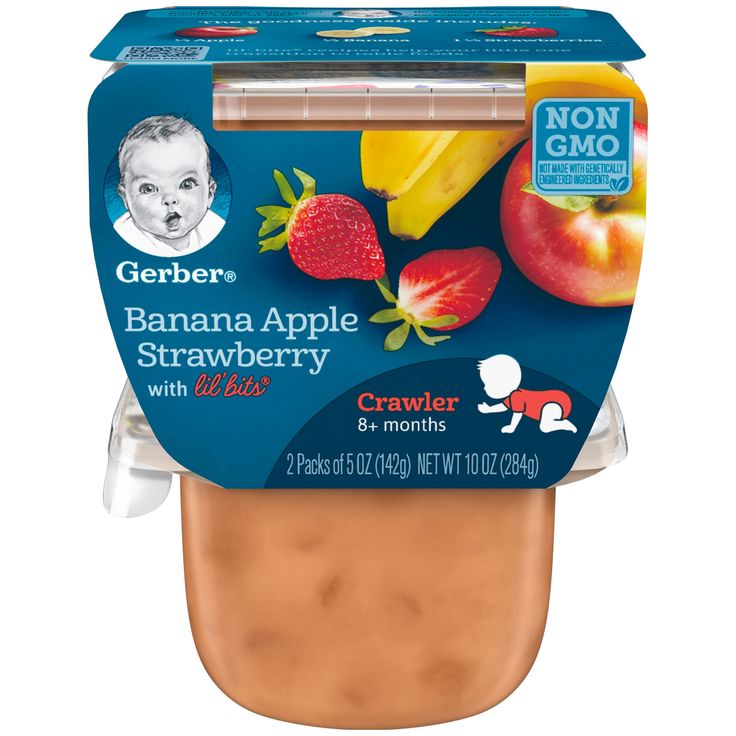
Biden turned to this law after a group of congressmen, both Democrats and Republicans, turned to him with the corresponding demand on May 17. The appeal was supported by both houses of Congress.
"Giving firms to prioritize and allocate production of key baby food ingredients will help boost production and speed up supply chains," the White House said in a statement. The US Department of Defense will use its commercial air freight contracts, "as it did to transport materials in the early months of the coronavirus pandemic," to transport products from facilities overseas. "Bypassing scheduled air travel routes will expedite the import and distribution of infant formula," the White House said in a press release. Previously, CNBC sources at the FDA (Food and Drug Administration) named Chile, Ireland, Mexico and the Netherlands as potential suppliers.
600,000 children around the world
could be left without the care they need in the next six months, UNICEF believes
Baby food problems in the US prompted a recall by major manufacturer Abbott Nutrition of products manufactured at a plant in Sturgis, Michigan, in mid-February .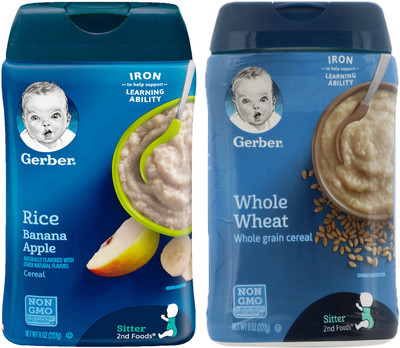 This came after four infants were poisoned in a number of states after being infected with salmonella and the bacterium Cronobacter sakazakii and subsequently hospitalized, two of whom died. The FDA regulator had complaints about the production process at the company’s plant back in October 2021.
This came after four infants were poisoned in a number of states after being infected with salmonella and the bacterium Cronobacter sakazakii and subsequently hospitalized, two of whom died. The FDA regulator had complaints about the production process at the company’s plant back in October 2021.
The FDA and the manufacturer launched investigations, with the regulator ordering a recall of all Similac PM 60/40, Similac, Alimentum and EleCare brand blends that expired April 1, 2022. The company also had to suspend production for three months. No new cases of infection, with the exception of four in February, were recorded. On Monday, May 16, Abbott Nutrition reached an agreement with the FDA to allow production to resume at the Sturgis plant by hiring independent experts to ensure it is manufactured to approved standards. At the same time, the resumption of production does not promise to be fast. Abbott said it would take up to two weeks to reopen a Michigan facility and up to eight weeks for blends to be in stores across the US.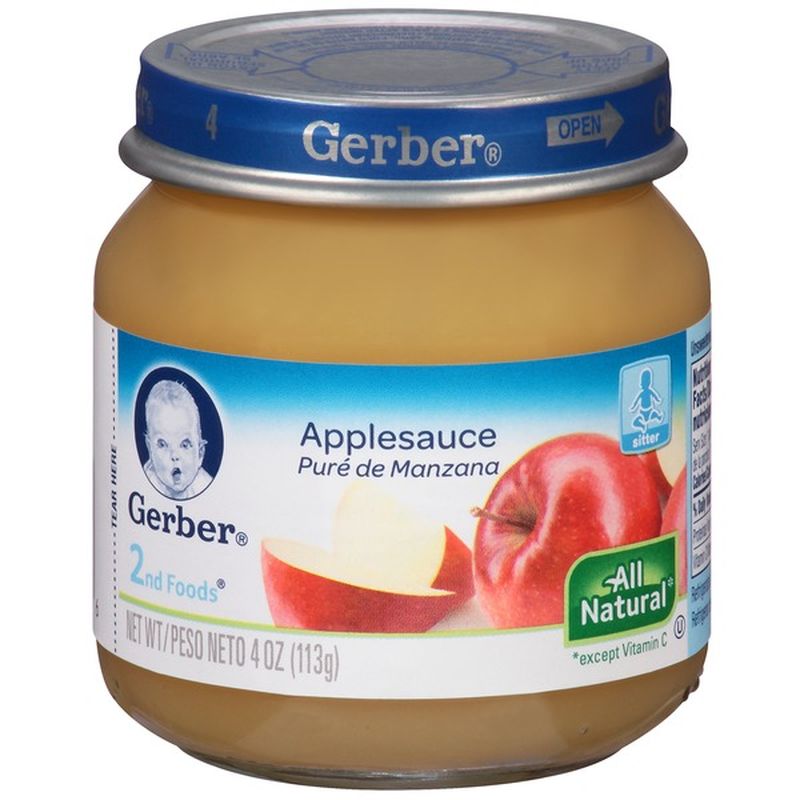
Abbott Nutrition, along with Mead Johnson Nutrition, Nestle USA and Perrigo, are key US baby food manufacturers. During the first week of May, 43% of infant formula was out of stock and in stores across the US, according to Datasembly, a company that tracks retail data. This roughly corresponds to Abbott Nutrition's share of the US baby food market, according to USDA estimates. As of early 2022, Abbott Nutrition was also the world's fourth-leading baby food manufacturer, according to Industry Research.
DPA appeared in 1950 and since then has been repeatedly supplemented, continuing to operate until now. In general, the idea of the law is to give the President of the United States the right to require businesses to take actions that are necessary for national security, says Igor Slabykh, a lawyer practicing in the United States. And it is not only about military or economic security. Even such loose wording as "ensuring the national welfare" is also part of national security, Slabykh notes.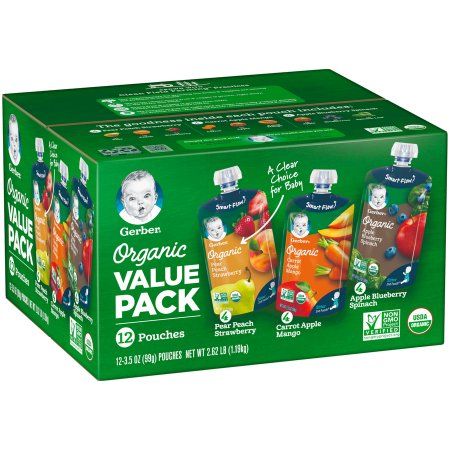
The lawyer recalled that since the beginning of the law, it has been applied about 50 times and this has been done by almost every US president. Both Donald Trump and Barack Obama applied the law immediately before Biden, Slabykh says. Trump used the law to demand priority production of ventilators early in the pandemic. Obama used the law to counter cyber threats from China. Biden himself has also already managed to use the law to increase the production of protective equipment that is used during the pandemic, as well as to produce a vaccine against COVID-19., says the lawyer.
The fact that Biden activated the Law on Defense Production speaks of an emergency, says Dmitry Suslov, deputy director of the HSE CCEMI. The shortage of milk formula is also associated with inflation - citizens simply sweep away the most important goods from the shelves. The problem of inflation is now of great concern to Americans, and it is precisely this that can become the main reason for the Democrats to lose in the midterm elections in November 2022, Suslov believes.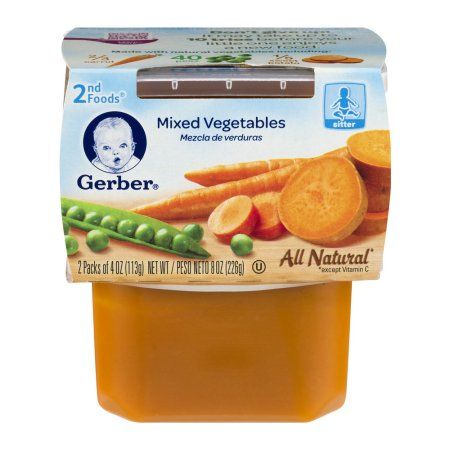 In the fight against inflation, the Biden administration is failing, and it is no longer able to shift the arrows to Russia. Now Biden's rhetoric about "Putin's price increase" causes only irritation and laughter in the American public, the expert concludes.
In the fight against inflation, the Biden administration is failing, and it is no longer able to shift the arrows to Russia. Now Biden's rhetoric about "Putin's price increase" causes only irritation and laughter in the American public, the expert concludes.
In Russia, as Kommersant reported citing sources, in early March, a threat of a shortage of infant formula was recorded. According to the interlocutors of the publication, baby food manufacturers, in particular Nestle, notified retail chains about the depletion of raw materials. They attributed this to the failure of supplies from Europe. In parallel, demand, according to the sources of the newspaper, then jumped by 250%. At that time, problems had already arisen with powdered milk mixtures, as well as fruit puree, the sources of the newspaper say. On March 6, Tatyana Butskaya, Deputy Chairman of the State Duma Committee on Family, Women and Children, announced numerous complaints about rising prices for breast milk substitutes.
On March 17, Rosstat announced an increase in prices for baby food by more than 4% in the first week of March alone. The Federal Antimonopoly Service then explained the rise in prices by the cancellation of promotions by manufacturers, thanks to which mixtures could be bought at a discount of up to 50%. In March, according to Rosstat, prices for children's canned vegetables increased by 7.2-12%. In April, a significant increase in prices for baby food was recorded in certain regions, for example, in the Sverdlovsk region in the middle of the month they increased by more than 7%, according to the regional statistical office. At the end of March, baby food manufacturers (Gerber, Nan Optipro, Nestogen) warned of a possible increase in prices for their products in Russia by up to 20–30% due to logistics difficulties amid sanctions.
At the beginning of April, the newspaper reported on the emergence of another factor in the shortage of baby food. So, on April 11, Russia introduced tougher measures of veterinary control over the import of products into the country.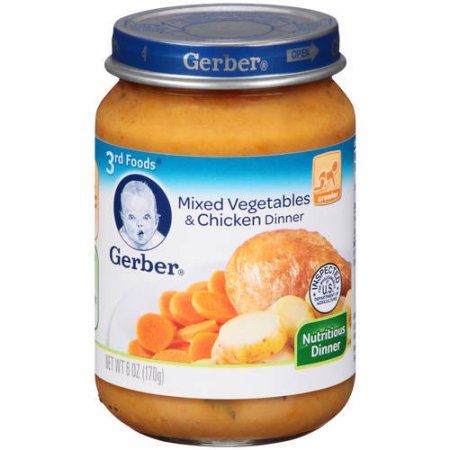
However, by the beginning of May, the growth rate of prices for baby food in Russia as a whole slowed down to a range of 1%.
Although there are supply chain and logistics problems that are common around the world, the problem with the lack of baby food in the United States is a local issue related to the problems of American production, says Mikhail Burmistrov, CEO of Infoline Analytics. In Russia, the price pressure obviously remains, the expert agreed, in the segment of dairy products, prices for baby food are growing. But there is no systemic shortage of infant formula, except for the moments associated with those companies that limited the supply of certain brands to Russia, says Burmistrov. The March rise in prices was largely associated in Russia with massive rush demand amid panic due to anti-Russian sanctions in connection with the situation in Ukraine. Now, according to Burmistrov, it is not systematically visible that there is a sharp deterioration in the situation.